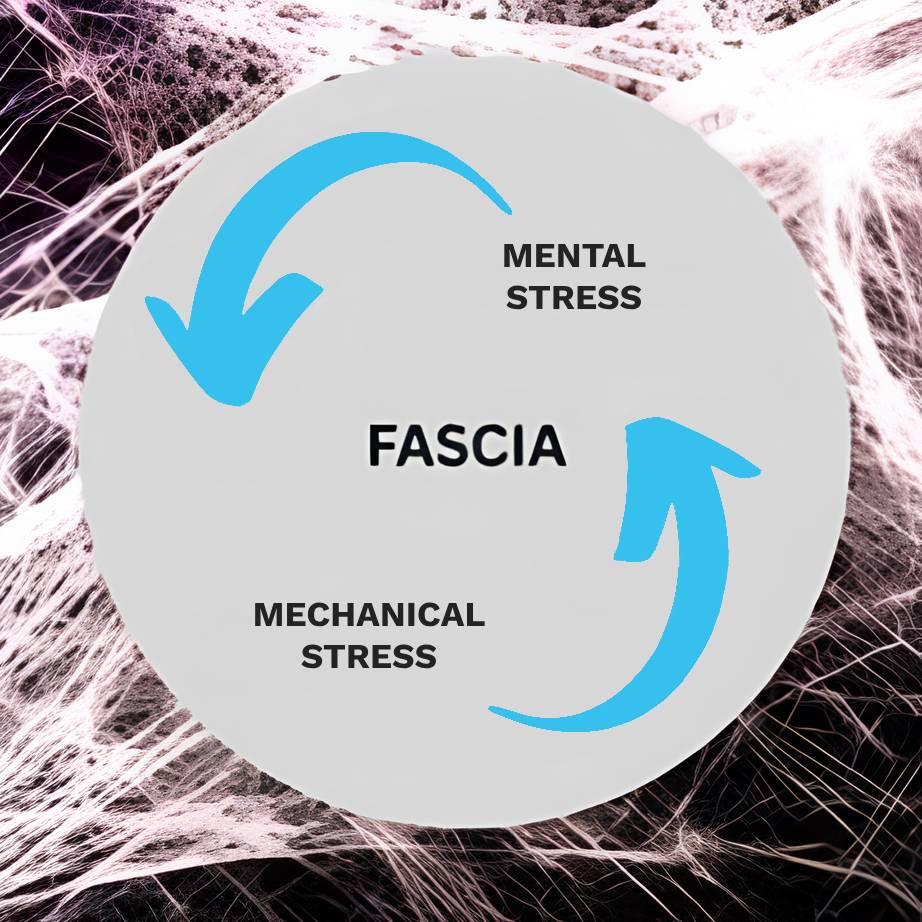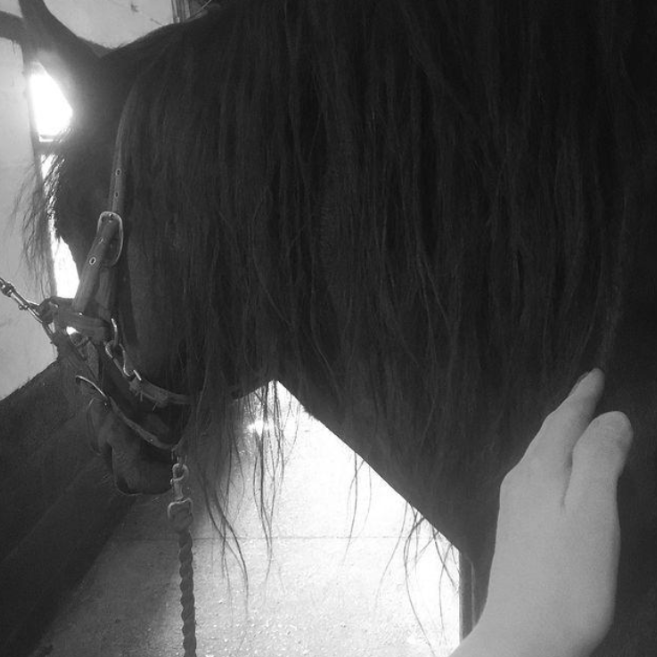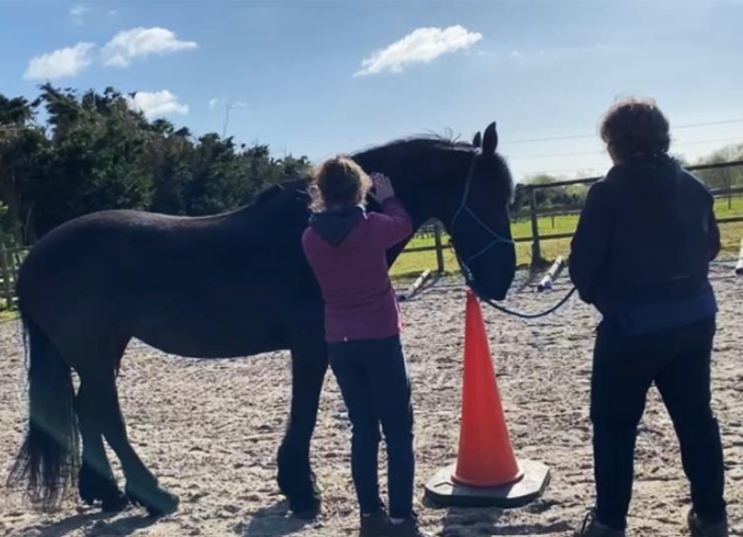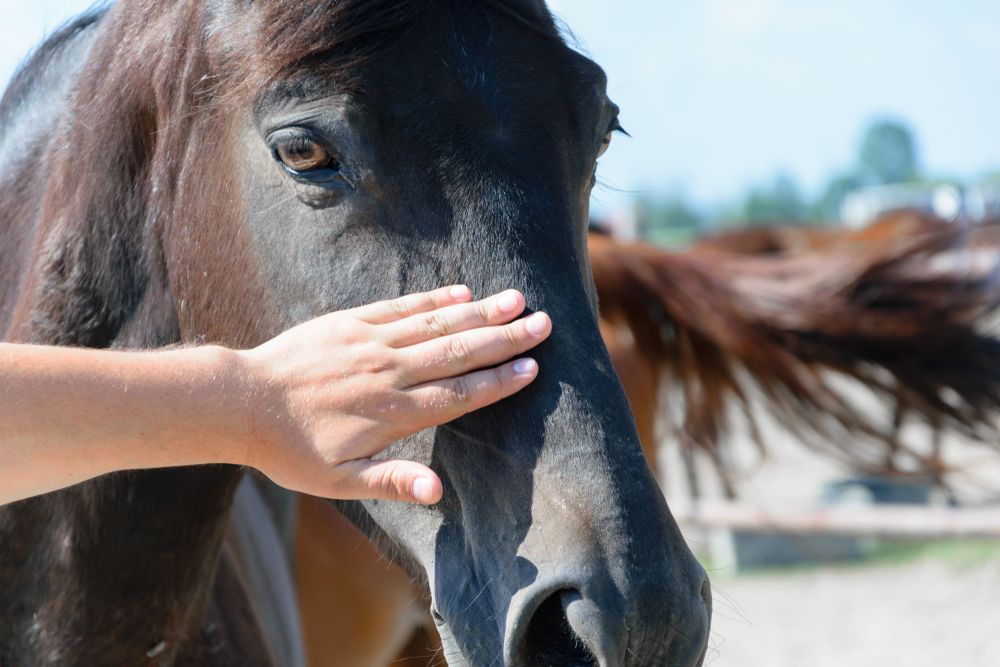What is FASCIA and why is it so important?
Fascia is a thin casing of connective tissue that surrounds and holds every organ, cell, blood vessel, bone, nerve fibre and muscle in place. It has so many nerves it makes it almost as sensitive as skin and is known to have a direct communication with the autonomic nervous system.
Although the theory is complex, what this all means is that both physical and emotional trauma can be stored in the body and can cause an emotional response in the brain.
If the fascia system is not healthy it can lead to chronic stress with the body trapped in a constant sympathetic (fight or flight) nervous state.

Signs that horse is trapped in a chronic sympathetic state can include:
- Digestive stress / ulcers
- Increased muscle tension (especially through the diaphragm, back, ribcage and psoas)
- Loss of postural tone
- Poor sleeping habits
- Spooky, restless or fidgety behaviour
- Depression, excessively still
- Low immune system, susceptible to infection, mud fever, sweet itch etc

Benefits of Equine Fascia & Trauma Release
Based on the training of EFTR pioneer, Liza Kimble, there are two ways a horse can benefit from an EFTR session:
1. To release physical restrictions in the superficial fascia to enable healthy muscle function and improve mobility.
Horses can end up with restricted fascia that has many different causes including poor saddle fit, hoof balance, management and training. Your horse will not be able to perform at their best if the fascia is preventing their muscles from functioning fully.
Medical conditions such as lameness, dental pain or digestive discomfort will often cause specific stress patterns through the fascial system therefore when noted it may be recommended that you talk to your vet and allied professionals to help your horse going forwards.
Scars from trauma, surgical procedures, castration and branding all have a significant effect on a horse’s Myofascia with even the smallest scar on a hind fetlock being able to cause discomfort and dysfunction at the poll! Therefore, specific scar release techniques may be used as part of a session when required.
2. To work with the autonomic nervous system to create safety in the brain
Our domestic horses have a lot to deal with, often having suffered a traumatic weaning and going on to have several owners in their lives. There are still too many horses who will have endured forceful handling or training at some point and are denied the chance to make long-term friendships.
But they are forgiving souls and despite these difficulties it is in their nature as a herd animal to be compliant and non-confrontational. They will always do their best to cooperate which inevitably comes at a cost.
As with humans, holding on to stress within their fascial system can have a dramatic effect on their physical and mental wellbeing. With humans we are seeing the importance of removing this stress from the body with trauma release exercises and talk therapy, EFTR is a way of achieving the same results using slow and mindful touch.
Using the lightest pressure, the techniques used in EFTR are powerful enough to send signals via the autonomic nervous system to the brain to tell it that the body is safe and can come out of the fight or flight state, allowing the muscles to relax and normal respiration and digestion to happen.

Certified Trauma Informed Therapist
Science has proven that trauma can create changes in a horse’s nervous system, leading to fearful and unpredictable behaviour. This is frustrating and sometimes dangerous.
A Trauma Informed Trainer has the understanding necessary for them to be equipped with correct knowledge and appropriate techniques to help a horse cope with these traumatic changes.
Sue has completed an accredited Understand Horses certificate course led by neuroscientist and equine behaviour consultant Dr Emma Lethbridge, The course examined how fear and trauma can affect the horse and how to resolve the resulting problems in a compassionate and welfare-focused way.
Benefiting from a thorough understanding of how horses think and behave if they are frightened or traumatised, she was also taught the practical skills necessary to train and handle horses more effectively.
If your horse is struggling to cope with aspects of their care, whether it be medical procedures, bathing, or phobias of certain objects or places, please contact us as we may well be able to help!
View EFTR in Action:



